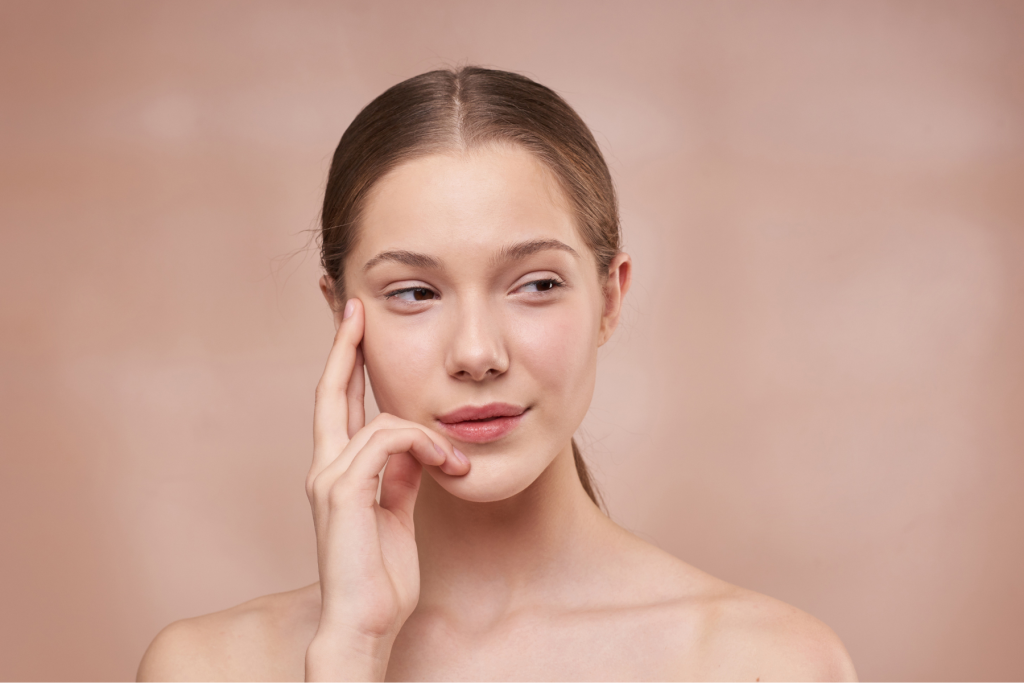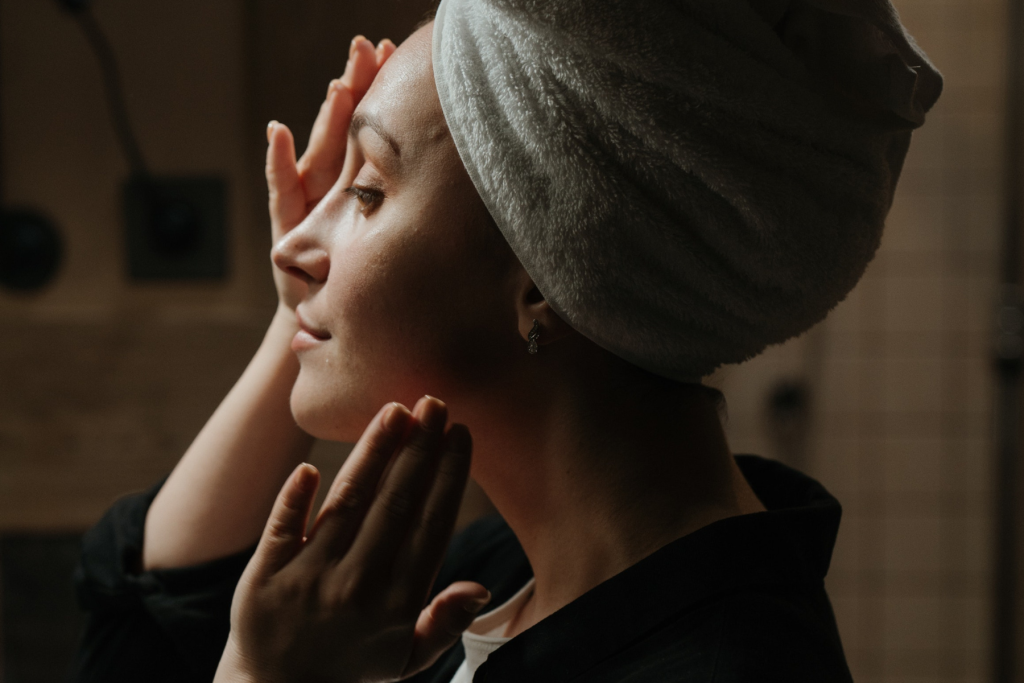Discover whether using both a serum and a moisturizer is necessary for your skincare routine.
Do I Need to Use Both a Serum and a Moisturizer?

The world of skincare can often be confusing and overwhelming. With so many products available on the market, it can be challenging to determine which ones are necessary for your skincare routine. One common question that arises is whether you really need to use both a serum and a moisturizer. In this article, we will delve into the basics of serums and moisturizers, explore their individual roles in skincare, and discuss the debate surrounding their usage. By the end, you’ll have all the information you need to make an informed decision about your skincare routine.
Understanding the Basics: Serum and Moisturizer
Before we tackle the question of whether you need both a serum and a moisturizer, let’s first understand the basics of these two skincare products.
What is a Serum?
A serum is a lightweight skincare product that contains a high concentration of active ingredients. Its purpose is to deliver potent ingredients deep into the skin, targeting specific skin concerns such as fine lines, wrinkles, and hyperpigmentation. Serums usually have a thin consistency and are designed to be applied after cleansing and toning but before moisturizing.
When it comes to serums, the possibilities are endless. There are serums formulated with vitamin C to brighten the skin, hyaluronic acid to plump and hydrate, and retinol to promote cell turnover. Each serum is carefully crafted to address specific skin concerns and provide targeted benefits.
One of the key advantages of using a serum is its ability to penetrate the skin more deeply than other skincare products. The lightweight texture allows the active ingredients to be absorbed quickly and efficiently, delivering noticeable results. Whether you’re looking to reduce the appearance of wrinkles or even out your skin tone, incorporating a serum into your skincare routine can make a significant difference.
What is a Moisturizer?
On the other hand, a moisturizer is a skincare product that helps to hydrate and nourish the skin. It forms a protective barrier on the surface of the skin, locking in moisture and preventing moisture loss throughout the day. Moisturizers come in various textures, such as creams, lotions, and gels, and are typically the final step in a skincare routine.
Moisturizers are essential for maintaining the skin’s hydration levels. They contain ingredients like humectants, emollients, and occlusives, which work together to keep the skin moisturized and supple. Humectants attract water to the skin, emollients smooth and soften the skin, and occlusives create a barrier to prevent water loss.
Choosing the right moisturizer for your skin type is crucial. If you have dry skin, you may benefit from a rich, creamy moisturizer that provides intense hydration. For oily or acne-prone skin, a lightweight, oil-free moisturizer is recommended to avoid clogging the pores. Combination skin may require a moisturizer that balances hydration without causing excess oiliness.
It’s worth noting that moisturizers can also offer additional benefits beyond hydration. Many moisturizers contain ingredients like antioxidants, peptides, and botanical extracts that help to improve the overall health and appearance of the skin. Some moisturizers even have SPF to provide sun protection, making them a multi-purpose product in your skincare arsenal.
In conclusion, while serums and moisturizers serve different purposes in a skincare routine, they complement each other and can be used together for optimal results. Serums deliver targeted active ingredients to address specific skin concerns, while moisturizers provide hydration and nourishment to maintain healthy skin. By incorporating both into your daily regimen, you can achieve a well-rounded skincare routine that addresses all of your skin’s needs.
The Role of Serum in Skincare
Now that we’ve established what serums and moisturizers are, let’s dive deeper into the role of a serum in your skincare routine.
When it comes to achieving healthy and radiant skin, incorporating a serum into your skincare routine can make a significant difference. A serum is a lightweight and fast-absorbing product that is packed with high concentrations of active ingredients. These ingredients are carefully chosen to target specific skin concerns and provide visible results.
Benefits of Using a Serum
Serums are formulated with powerful ingredients that target specific skin concerns. Whether you’re dealing with acne, dullness, or aging, there’s a serum out there that can help. These potent ingredients can penetrate deeply into the skin, delivering results more effectively than other skincare products.
For example, if you struggle with acne, a serum containing salicylic acid can help unclog pores and reduce inflammation. On the other hand, if you’re looking to brighten your complexion, a serum with vitamin C can help fade dark spots and even out skin tone.
Additionally, serums often contain antioxidants that help protect the skin from environmental damage. These antioxidants neutralize harmful free radicals, which can accelerate the aging process and cause skin damage. By incorporating a serum into your routine, you’re providing your skin with an extra layer of defense against environmental stressors.
When and How to Apply a Serum
The best time to apply a serum is after cleansing and toning, but before moisturizing. This allows the active ingredients to penetrate deeply into the skin without any barriers. Start with a clean face, apply a small amount of serum to your fingertips, and gently massage it into your skin using upward motions.
It’s important to note that different serums may have specific instructions for application. Some may recommend patting the serum onto the skin, while others may advise using a specific amount or frequency. Always refer to the instructions provided with your particular serum to ensure you’re getting the most out of its benefits.
In addition to the face, serums can also be applied to the neck and décolletage area, as these areas are often exposed to the same environmental stressors as the face. By extending the application of your serum to these areas, you’re ensuring that your skin receives the same level of care and protection.
In conclusion, incorporating a serum into your skincare routine can help address specific skin concerns and provide visible improvements. With their potent ingredients and ability to penetrate deeply into the skin, serums offer a targeted approach to achieving healthier and more radiant skin.
The Importance of Moisturizing
Now that we’ve covered serums, let’s turn our attention to moisturizers and why they are an essential part of any skincare routine.
Moisturizers play a crucial role in maintaining skin health and hydration. As we go about our daily lives, our skin is exposed to various environmental factors that can strip away moisture, leaving it dry and vulnerable. But what exactly happens when our skin lacks moisture?
When our skin becomes dry, it can lead to a range of issues. Firstly, dry skin can feel tight and uncomfortable, causing discomfort throughout the day. It can also become flaky and prone to irritation, making it more susceptible to redness and inflammation. Additionally, dry skin can accelerate the aging process, as it lacks the plumpness and elasticity that well-hydrated skin possesses.
This is where moisturizers come to the rescue. Not only do they help to replenish lost moisture, but they also form a protective barrier on the skin’s surface, preventing moisture loss and keeping the skin hydrated throughout the day. But what exactly makes moisturizers so effective in maintaining skin hydration?
Moisturizers contain a variety of ingredients that work together to lock in moisture and promote skin hydration. One key ingredient found in many moisturizers is hyaluronic acid. This powerful humectant has the ability to attract and retain water, effectively increasing the skin’s moisture levels. Another common ingredient is glycerin, which acts as a humectant as well, drawing moisture from the air and into the skin.
But it’s not just about choosing any moisturizer – it’s important to choose one that suits your specific skin type. If you have dry skin, opt for a rich, creamy moisturizer that provides intense hydration. These moisturizers often contain ingredients like shea butter and oils that can deeply nourish and moisturize dry skin.
On the other hand, if you have oily or acne-prone skin, lightweight, oil-free moisturizers are your best bet. These moisturizers are designed to provide hydration without clogging the pores or adding excess oil to the skin. Look for ingredients like niacinamide and salicylic acid, which can help regulate oil production and keep breakouts at bay.
For those with combination skin, finding the right moisturizer can be a bit trickier. Combination skin typically has an oily T-zone (forehead, nose, and chin) and drier areas on the cheeks. In this case, opt for a moisturizer that can balance oil production in the T-zone while hydrating the drier areas. Look for moisturizers that are labeled as “oil-free” or “non-comedogenic” to ensure they won’t clog your pores.
Now that you understand the importance of moisturizing and how to choose the right moisturizer for your skin type, you’re well on your way to achieving a well-hydrated and healthy complexion. Remember, consistency is key when it comes to skincare, so make sure to incorporate moisturizing into your daily routine for optimal results.
The Debate: Serum vs. Moisturizer
Now that we understand the individual roles of serums and moisturizers, let’s address the age-old debate: can a serum replace a moisturizer, or is a moisturizer enough without a serum?
Can a Serum Replace a Moisturizer?
While serums do provide hydration, they are not designed to replace moisturizers completely. Serums primarily target specific skin concerns and deliver active ingredients, while moisturizers focus on providing overall hydration and protection. If you have oily skin, a serum may be sufficient as a moisturizer replacement. However, for most skin types, it is best to use both a serum and a moisturizer for optimal skincare results.
Is a Moisturizer Enough Without a Serum?
On the flip side, using a moisturizer without a serum can still provide adequate hydration to the skin. However, without the targeted active ingredients found in serums, you may not be addressing specific skin concerns as effectively. So, while a moisturizer is important, incorporating a serum into your routine can take your skincare to the next level.
Combining Serum and Moisturizer for Optimal Skin Health
Now that we’ve settled the debate, let’s explore the benefits of using both a serum and a moisturizer in your skincare routine.

The Benefits of Using Both Products
By combining a serum and a moisturizer, you can reap the benefits of both products. Serums target specific skin concerns, delivering potent active ingredients deep into the skin, while moisturizers provide overall hydration and create a protective barrier. Together, they work synergistically to improve skin health and address multiple skincare needs.
How to Layer Serum and Moisturizer Correctly
When it comes to layering serum and moisturizer, the order is crucial. After cleansing and toning, apply your serum first, allowing it to fully absorb into the skin. Once the serum has been absorbed, follow up with your moisturizer to seal in the benefits and provide additional hydration. Remember, always read the instructions provided with your skincare products, as some may have specific layering recommendations.
In conclusion, while it may seem overwhelming to incorporate both a serum and a moisturizer into your skincare routine, there are clear benefits to using both. Each product serves a unique purpose in maintaining healthy, hydrated skin. So, if you’re seeking optimal skin health, why choose one when you can have the best of both worlds? Embrace the power of serums and moisturizers, and your skin will thank you!





